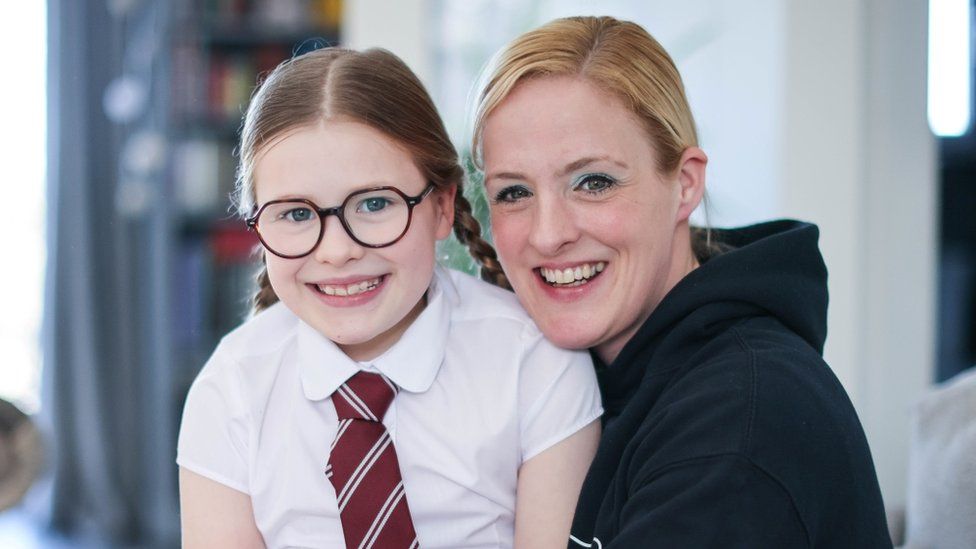Strep A: 'I'd never seen a child hallucinate before'
- Published

When Lisa Melrose's daughter Evie fell ill in October 2022, it was like no illness the mum-of-three had ever seen.
Calpol and Nurofen were having no effect and the six-year-old was displaying worrying symptoms.
Lisa said: "I'd never seen a child hallucinate before or become sort of listless and so incredibly lethargic.
"We've been through sickness bugs, tonsillitis and broken bones but none of these compared with what happened with Evie.
"It was very frightening."
Evie, from Dundee, was diagnosed with Strep A - a bacteria that can cause a variety of illnesses.
Symptoms include nausea and vomiting, a rash, sore throat and flu-like symptoms.
Scientists at Dundee University are now leading a £2.3m project to develop the world's first vaccine for Strep A.
At the time Evie fell ill, the UK was in the grip of an outbreak which claimed the lives of dozens of children - including three in Scotland.
After she was diagnosed, Evie was prescribed antibiotics and took a few days to recover.
Her mum Lisa works as a baby sensory teacher, with 200 youngsters across her classes. She found that her experience was a common one.
She said: "I asked each class to put their hands up if they had had experience of a baby or a young child in their house who had had Strep A.
"I had 35 parents or carers say they'd had that within their household.
"Their little ones were very ill and some ended up having to go to out-of-hours or hospital."
Dundee mum Fiona Robertson's five-year-old son Blair had Strep A, which developed into scarlet fever.
Doctors said his oxygen levels were not good, so he was given an inhaler and put on oxygen.
Fiona said: "As soon as they took him off, his oxygen levels went down again and that's when they said we need to get an ambulance and take him to Ninewells Hospital.
"It's a really scary experience."
The team from Dundee University's school of life sciences is teaming up with experts from London and South Korea in an effort to develop vaccines for the bacteria.
What is Strep A?
- Group A streptococcal (GAS) infection is caused by strains of the streptococcus pyogenes bacterium
- The bacteria can live on hands or the throat for long enough to allow easy spread between people through sneezing, kissing and skin contact
- Most infections cause mild illnesses such as "strep throat" or skin infections
- It can also cause scarlet fever and in the majority of cases this clears up with antibiotics
- On rare occasions the bacteria can get deeper into the body - including infecting the lungs and bloodstream. It is known as invasive GAS (iGAS) and needs urgent treatment as this can be serious and life-threatening
The work is part of a £2.3m project supported by the Right Foundation, a research funding agency.
Dr Helge Dorfmueller is leading the Dundee University collaboration.
He said it was "very challenging" to find a vaccine that protected patients from outbreaks in different countries because they could involve very different bacteria.
But he said the project was identifying "key components of vaccine development" which could make it successful.
This research will be followed by clinical trials and the aim is to have at least one vaccine on offer within the next decade.